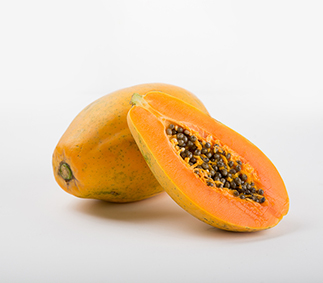CDC, FDA, and several states are investigating the Salmonella outbreak linked to pig ear dog treats. Several Salmonella strains, including Cerro, Derby, London, Infantis, Newport, Rissen, and I 4,[5],12:i, were isolated from this outbreak. As of August 26, 2019, a total of 143 people from 35 states were infected with the outbreak strains of Salmonella. Of 110 ill people with information available, 30% have been hospitalized. No deaths have been reported. Antibiotic resistance to several antibiotics was found. Evidence indicates that contact with pig ear dog treats is the likely source of this outbreak. Of 100 ill people, 88% reported contact with a dog before getting sick. Of 80 people with available information, 70% reported contact with pig ear treats or with dogs that were fed pig ears. Testing identified Salmonella in over 90 samples, with many different strains. Some of pig ears were imported from Argentina, Brazil, and Colombia. Some product labels indicated As we reported in the News several companies have recalled pig ears due to Salmonella. @ https://www.cdc.gov/salmonella/pet-treats-07-19/index.html
ruth
Outbreak of Salmonella Infections Linked to Pet Treats
Dan-W
A new method to detect big six Shiga toxin-producing Escherichia coli in Apple Juice within one shift
The J Food Protection published an article describing a new method to detect Shiga toxin-producing Escherichia coli (STEC) in foods. The method is capable of detecting serotype O157:H7 one of six non-O157 serogroups, O26, O45, O103, O111, O121, and O145, termed “The Big Six.” The STEC bacteria were isolated from unclarified apple juice by a centrifugation step with the use of an immunocupture technique to minimize contaminants (such as pectin and polyphenols that may co-purify with DNA) that may interfere with DNA amplification efficiencies and limit sensitivity. The immunocupture method was followed by PCR of the Shiga toxin genes stx1a and stx2a. The new method did not involve any culture enrichment and allowed detection of <5 CFU Big Six STEC. The method could be completed in 6.5 h. Inclusivity and exclusivity were tested with 52 Big Six STECs and 30 unrelated strains. @ https://www.ncbi.nlm.nih.gov/pubmed/31414899
J Food Prot. 2019 Sep;82(9):1512-1523. doi: 10.4315/0362-028X.JFP-19-134.
ruth
The FDA posted on their website that Brutus & Barnaby of Clearwater, Florida recalled all size variations of our Pig Ears for Dogs because it has the potential to be contaminated with Salmonella. Bags of Brutus & Barnaby Pig Ears were distributed to all states via Amazon.com, Chewy.com, Brutusandbarnaby.com and stores of Natures Food Patch in Clearwater, Florida. Four sizes of “Pig Ears 100% Natural Treats for Dogs” (8, 12, 25, and 100 count) were recalled. Brutus & Barnaby has ceased the production and distribution of the product as FDA and the company continues their investigation as to what caused the problem. @ https://www.fda.gov/safety/recalls-market-withdrawals-safety-alerts/brutus-barnaby-llc-recalls-all-size-bags-pig-ears-natural-treats-dogs-because-possible-salmonella?utm_campaign=Brutus%20%26%20Barnaby%20LLC%20recalls%20all%20size%20bags%20of%20%E2%80%9CPig%20Ears%20Natural%20Treats%20for%20Dogs%E2%80%9D&utm_medium=email&utm_source=Eloqua
Brutus & Barnaby of Clearwater, Florida is recalling all size variations of our Pig Ears for Dogs because it has the potential to be contaminated with Salmonella. Salmonella can affect animals eating the products and there is risk to humans from handling contaminated pet products, especially if they
ruth
The FDA issued a letter to the papaya industry, calling on all sectors of the industry to take actions to prevent outbreaks in the future. The letter to the papaya industry could become a precedent for other commodities of how the agency is intending to enforce in the future the food laws. Since 2011, there have been 8 U.S. Salmonella outbreaks traced to papayas imported from Mexico. One outbreak is ongoing with more than 70 people in 8 states infected. The previous 7 outbreaks involved almost 500 illness, more than 100 hospitalizations, and two deaths. The FDA sees it as the papaya industry’s responsibility to stop recurring Salmonella outbreaks that have inundated U.S. consumers in recent years. They ask the industry to assess venerability factors to contamination. If a foodborne pathogen is identified, a root cause analysis should be performed to determine the likely source of contamination. Procedures and practices that minimize contamination must be implemented. The papaya industry needs to examine the use and monitoring of water used to grow, spray (pesticides, fungicides), move, rinse or wax crops to identify and minimize risks from potential hazards. The industry should enhance traceability, to more rapidly track the product to expedite its removal from commerce. The papaya industry should engage in food safety research to identify the potential sources and routes of contamination by microbial pathogens and develop data-driven and risk-based preventive controls. The FDA issued a warning letter to a papaya importer, Agroson’s LLC, following an FDA investigation at the facility in conjunction with the current outbreak. This investigation uncovered significant violations of the Federal Food, Drug, and Cosmetic Act. @ https://www.fda.gov/news-events/press-announcements/statement-calling-all-sectors-papaya-industry-improve-practices-better-protect-consumers?utm_campaign=082619_Statement_FDA%20calls%20on%20papaya%20industry%20to%20improve%20their%20safety%20practices&utm_medium=email&utm_source=Eloqua
FDA calls on papaya industry to improve their safety practices




